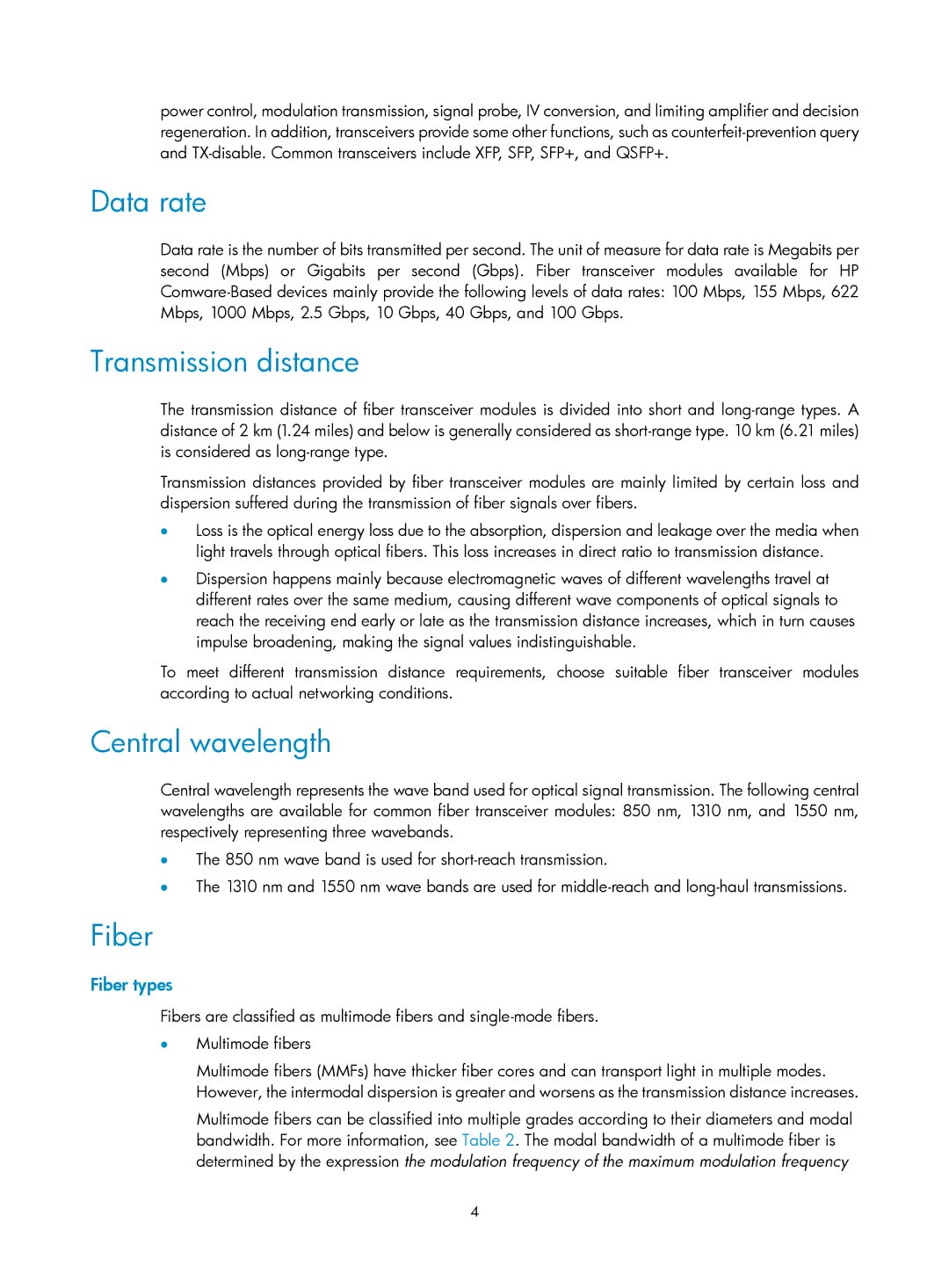power control, modulation transmission, signal probe, IV conversion, and limiting amplifier and decision regeneration. In addition, transceivers provide some other functions, such as
Data rate
Data rate is the number of bits transmitted per second. The unit of measure for data rate is Megabits per second (Mbps) or Gigabits per second (Gbps). Fiber transceiver modules available for HP
Transmission distance
The transmission distance of fiber transceiver modules is divided into short and
Transmission distances provided by fiber transceiver modules are mainly limited by certain loss and dispersion suffered during the transmission of fiber signals over fibers.
•Loss is the optical energy loss due to the absorption, dispersion and leakage over the media when light travels through optical fibers. This loss increases in direct ratio to transmission distance.
•Dispersion happens mainly because electromagnetic waves of different wavelengths travel at different rates over the same medium, causing different wave components of optical signals to reach the receiving end early or late as the transmission distance increases, which in turn causes impulse broadening, making the signal values indistinguishable.
To meet different transmission distance requirements, choose suitable fiber transceiver modules according to actual networking conditions.
Central wavelength
Central wavelength represents the wave band used for optical signal transmission. The following central wavelengths are available for common fiber transceiver modules: 850 nm, 1310 nm, and 1550 nm, respectively representing three wavebands.
•The 850 nm wave band is used for
•The 1310 nm and 1550 nm wave bands are used for
Fiber
Fiber types
Fibers are classified as multimode fibers and
•Multimode fibers
Multimode fibers (MMFs) have thicker fiber cores and can transport light in multiple modes. However, the intermodal dispersion is greater and worsens as the transmission distance increases.
Multimode fibers can be classified into multiple grades according to their diameters and modal bandwidth. For more information, see Table 2. The modal bandwidth of a multimode fiber is determined by the expression the modulation frequency of the maximum modulation frequency
4
